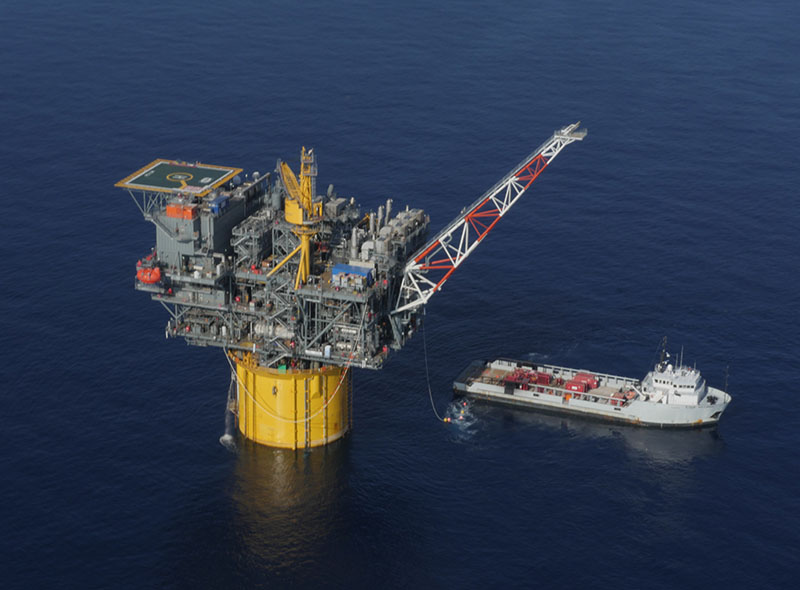(Bloomberg) — Hess Corp. slid to the lowest in more than three months after the oil and gas producer trimmed its output estimate for the year by as much a 10% following disruptions in two Gulf of Mexico fields.
Shares fell as much as 5.8% to $50.55, the lowest intraday since April 5. The stock was down 4.9% to $51.04 at 2:17 p.m. in New York.
Hess forecasts net production of 315,000 to 325,000 barrels of oil equivalent a day in 2016, the New York-based company said in a statement Wednesday. That’s down from the previous guidance of 330,000 to 350,000 barrels a day, primarily due to unplanned downtime at the two fields in the Gulf.
Three wells at the Tubular Bells Field were affected by defective subsurface safety valves and one well in Conger Field had a mechanical problem, management said on an conference call to discuss earnings. The company — which said that Schlumberger Ltd. is the vendor for the valves — is "actively pursuing legal claims" for the costs stemming from the issues.
"It’s extremely disappointing,” Chief Operating Officer Greg Hill said during the call. “We are going to go after the cost of the replacement belts, the cost of the remediation work, lost profits due to downtime and all the attorneys’ fees." Joao Felix, a spokesman at Schlumberger, didn’t immediately return phone and e-mail messages seeking comment.
Spending Plan
The producer also lowered its full-year capital expenditure target to $2.1 billion from $2.4 billion. Capital spending for the second quarter was $485 million, down 52% from a year earlier, "reflecting reduced activities in response to the weak commodity price environment," according to the statement.
“Our resilient portfolio provides an attractive mix of growth options including an unparalleled position in the Bakken, two significant offshore developments that will come online in 2017 and 2018, and the recent world-class oil discovery in Guyana," Chief Executive Officer John Hess said in the statement.
The company’s second-quarter loss was $392 million, or $1.29 a share, compared with a shortfall of $567 million, or $1.99 a share, a year earlier, the company said. Excluding one-time items, the loss was $335 million, or $1.10 a share, narrower than the $1.24 average loss estimated by 22 analyst forecasts ahead of the release.
Bloomberg News by Meenal Vamburkar





